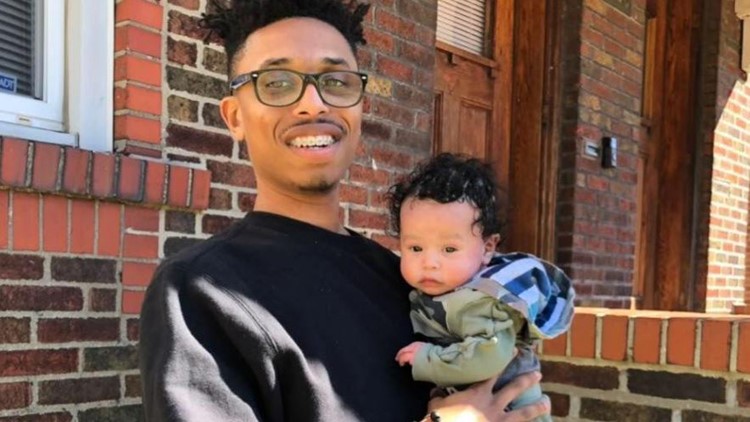ST. LOUIS — One day around the end of April, Amber Golden Smallwood, 41, couldn’t breathe.
“It was like an elephant was sitting on my chest,” she recalled.
The Kirkwood resident called her parents. They rushed their only child to an emergency room. Because of coronavirus restrictions, the family had to part ways at the door.
As Smallwood was wheeled away, she glanced at her parents with a frightening thought:
“This may be my last time seeing them.”
One worry Smallwood didn’t have was the thought of leaving her parents with the burden of making funeral arrangements for her. She has an insurance policy, with a generous payout she said. Her parents, a retired teacher and retired St. Louis County police officer made sure she did. Her mother, the former cop, was most insistent, Smallwood recalled:
“Mom was very specific. She’d say, ‘this is what you all do if I get killed in the line of duty.’ She always wanted us to be prepared just in case.”
Since the spread of the pandemic, many individuals, especially those around Smallwood’s age, are buying insurance policies “just in case” they contract the virus. According to research through September from MIB Group, a data-sharing service for insurance companies, application activity has grown almost twice as fast this year for Americans 44 and younger as for those 45-59. According to a CNBC report in October, younger adults have been buying insurance in elevated numbers since the spring.
Smallwood’s mom stayed on her as she reached adulthood:
“Mom would say, ‘You’re going to need life insurance If something happens, you can’t rely on us to bury you. You cannot put that on us.’”
Smallwood is pleased that she heeded her parent’s advice. She takes comfort knowing that if she does die, her retired parents will be OK. Because she’s already determined that she will be cremated, Smallwood has left instructions for her beneficiaries to donate the remaining payout from her policy to a deserving student who needs money for college.
Smallwood said that unfortunately many black families aren’t prepared when a loved one dies. She’s a social worker at an assisted living facility in St. Louis. She said at least 90 residents have become infected with the coronavirus within the past nine months at the facility.
Too many black families, she said, aren’t prepared when their loved one dies.
“When they place them here and I ask what funeral home they’re working with, most will say ‘oh, we don’t want to deal with that right now.’ After a person drops dead, that’s when they have to call six or seven family members to raise money.”
Smallwood has started asking relatives and residents about their funeral plans. She’s even contacted funeral homes and provides information about “pre-need agreements” policies people can prepay in advance for goods or services they or their relatives will receive upon death.
“We have to talk about this. As a social worker, I’ve gotten to where I know what these funeral homes charge. So, if you need a cheap funeral or cremation, I know where they can go.”
When asked why she thinks her demographic have increasingly bought life insurance, Smallwood said the coronavirus has made people her age re-evaluate their priorities?
“I know it has for me. This thing is killing people left and right. One minute you’re here and the next you’re gone. And if you have a wife, kids, a family, or a home … yeah, you’re going to need those high (paying) policies.”
At the age of 26, Kurly Dianal Taylor is already on that page. Kurly’s parents also insisted that he and his sister get life insurance. He got his first policy at age 22. For Kurly though, a teacher at McKinley Classical Leadership Academy High School in St. Louis, being insured is an investment in the future.
“We’re all going to die. It’s not a matter of how, it’s a matter of when,” Taylor said. “I want to leave something for the people I leave behind. I have a 2-year-old son, I have a nephew as well. I have an insurance policy that accumulates cash. So, when I retire, I can pull money from the policy to start a business or my son can use the policy to go to college or start his own business.”
Taylor said there are a few key factors that he believes explain why younger people are increasingly buying life insurance policies.
“Information, as well as COVID, is at the forefront. A lot of Gen Xers and Millennials, who went to college have amassed a lot of debt. They also realize that if they want to buy a house, having a policy with cash value is important. Because of social media more people are thinking about these things.”
Taylor’s father, Curly Taylor, 57, contracted the virus early in the year. Several relatives and members of his church were stricken as well, he said. Thankfully, his father has recovered. For Kurly Taylor, it was just another reminder about facing the fragility of life.
“For me, it’s just about being prepared. anything can happen and I want to make sure things are taken care of. I’m looking out for my family’s safety.”



